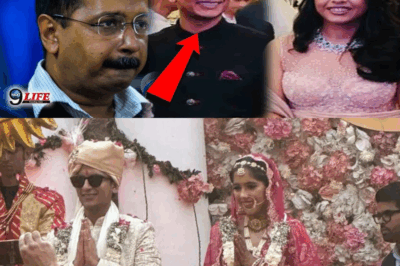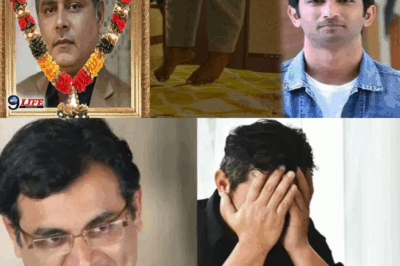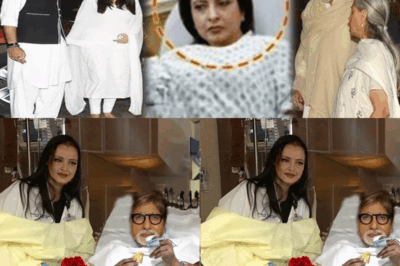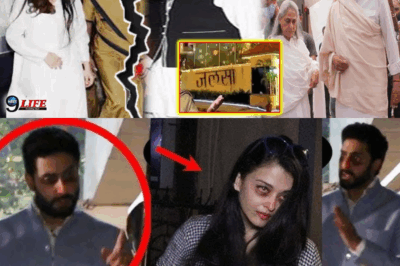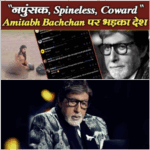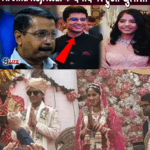Director Farah Khan Makes Controversial Statement About Offering Prayers Five Times a Day, Sparks Massive Uproar
Bollywood filmmaker and choreographer Farah Khan has found herself at the center of a social media firestorm after making a controversial statement regarding the Islamic practice of offering prayers (namaz) five times a day. Known for her bold opinions and outspoken personality, Farah’s recent remarks have triggered outrage across various communities and drawn sharp reactions from religious scholars, fans, and even fellow celebrities.
The Statement That Sparked It All
During a recent appearance on a podcast promoting her upcoming film, Farah Khan was asked about her thoughts on spirituality and how she manages stress in the high-pressure environment of the entertainment industry. In response, she casually remarked:
“I honestly think offering namaz five times a day is a bit extreme in today’s world. We’re all busy, and God knows your heart even if you don’t follow every rule. What matters is being a good human.”
The comment, seemingly offhand and not intended to offend, quickly spiraled out of control once snippets of the podcast were shared online.
Social Media Erupts
Within hours, the video clip went viral, with hashtags like #FarahKhanInsultsIslam and #RespectNamaz trending on X (formerly Twitter). Many users accused Farah of disrespecting a fundamental pillar of Islam and trivializing a sacred practice.
One user wrote:
“Being busy is not an excuse. Namaz is not a burden — it’s a blessing. Shame on Farah Khan for belittling something so important to millions.”
Another added:
“It’s okay to be liberal, but mocking or questioning religious practices is crossing the line.”
Supporters and critics engaged in heated debates online, with Farah’s name dominating news feeds and discussion panels.
Religious Leaders Speak Out
Several Islamic scholars and clerics addressed the issue publicly, calling Farah’s words “irresponsible” and “hurtful.” Maulana Qasim Raza, a respected cleric, said in a press statement:
“Namaz is a core practice of our faith. To call it ‘extreme’ shows a deep misunderstanding. Public figures must be cautious and respectful when discussing religion, especially when they hold influence over millions.”
Some religious organizations demanded a public apology, urging Farah to retract her statement and clarify her position.
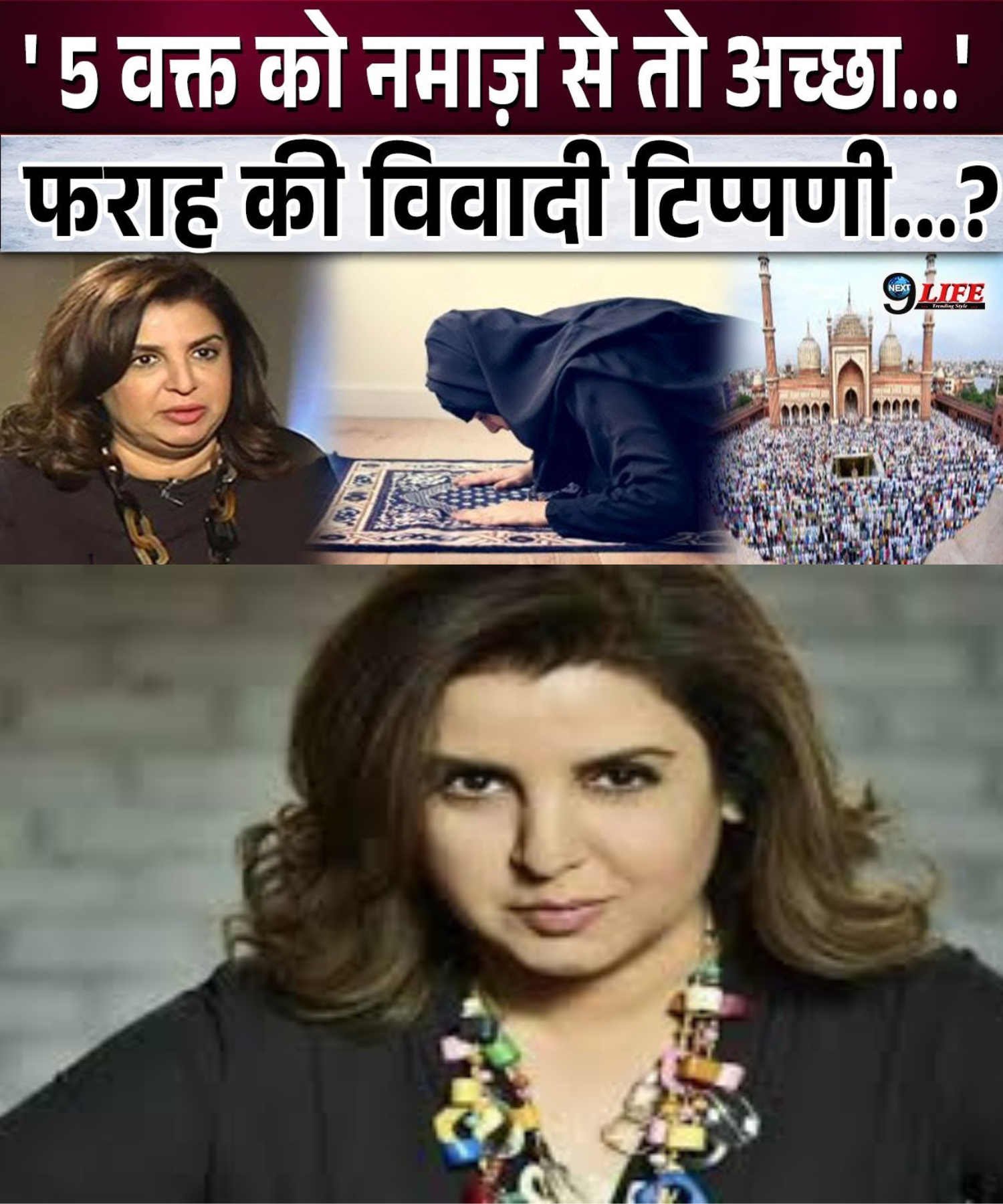
Bollywood Reacts
The controversy quickly spread throughout the film industry. While many celebrities remained silent, some came to Farah’s defense, calling the backlash disproportionate and emphasizing the importance of free speech.
Actor and close friend Boman Irani tweeted:
“I’ve known Farah for years. She respects all faiths. Let’s not twist her words. She was talking about personal struggle, not judging others.”
Others, however, kept their distance, wary of being drawn into religious controversies that could damage their public image.
Farah Khan Breaks Her Silence
As the criticism mounted, Farah took to Instagram to post a video statement addressing the controversy.
“I want to begin by apologizing if my words hurt anyone’s sentiments. That was never my intention. I respect all religions deeply — including Islam, the faith I was born into. My comment was not meant to question the practice of namaz, but to reflect on how people can feel overwhelmed in their daily lives.
I realize now that I should have chosen my words more carefully. I apologize from the bottom of my heart.”
She turned off comments on the post to avoid further online abuse but expressed her willingness to speak with any religious leaders to clarify her stance in person.
The Aftermath
Following her apology, reactions were mixed. Some accepted her clarification and praised her for taking responsibility. Others called the apology “too little, too late.”
The production house behind her upcoming film also issued a statement distancing itself from the controversy, stating that “Farah’s views are personal and not reflective of the studio’s position.”
Despite the uproar, Farah Khan remains a respected figure in Bollywood, and many believe the controversy, while intense, will pass with time.
Conclusion: A Cautionary Tale in the Age of Outrage
Farah Khan’s remarks serve as yet another reminder of the tightrope public figures must walk in an era where every word can be amplified, dissected, and potentially weaponized. Whether it was a genuine misstep or a misunderstanding, the backlash shows how deeply religious sentiments run — and how even casual comments can spark widespread fury.
In the end, Farah’s apology may have calmed some waters, but the incident will likely remain a cautionary tale in Bollywood and beyond: speak with sincerity, but never without sensitivity.
News
Just two days after the wedding, a revelation about Arvind Kejriwal’s son-in-law shocked his daughter Harshita.
A Shocking Revelation: The Story Behind Arvind Kejriwal’s Son-in-Law and the Impact on His Daughter Harshita Weddings are typically a…
Actor Lalit Manchanda hanged himself; his body was found in a locked room, similar to Sushant Singh.
Tragedy in Bollywood: The Untimely Death of Actor Lalit Manchanda The world of entertainment is often seen as one filled…
Salman Khan has been diagnosed with a life-threatening illness and, due to his suffering, attempted to take his own life. He is currently undergoing treatment in the United States.
Salman Khan Diagnosed with Life-Threatening Illness: Struggle, Despair, and Hope Amid Treatment in the United States Bollywood, with its dazzling…
Rekha has been diagnosed with cancer and has been admitted to the hospital, leaving Amitabh and Jaya shocked.
Rekha Diagnosed with Cancer: Hospitalization Leaves Amitabh and Jaya Shocked The world of Indian cinema is no stranger to dramatic…
Aishwarya Reached Jalsa House with the Police, Leaving Amitabh, Jaya, and Abhishek Shocked
Aishwarya Reached Jalsa House with the Police, Leaving Amitabh, Jaya, and Abhishek Shocked Mumbai, the city of dreams, is no…
A revelation has come out about actress Shubhangi Atre’s 18-year-old daughter; the family is devastated by the father’s death.
A Revelation Has Come Out About Actress Shubhangi Atre’s 18-Year-Old Daughter; The Family Is Devastated by the Father’s Death…
End of content
No more pages to load

